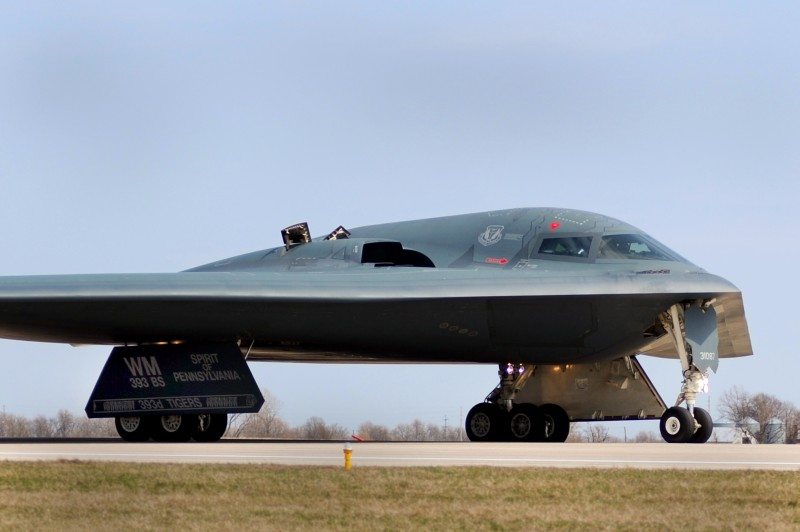The commander of Air Force Global Strike Command visited here recently to discuss the command’s mission and its significance to Air Force operations.
Lt. Gen. Jim Kowalski spoke to students from the Air War College, School of Advanced Air and Space Studies, and Air Command and Staff College.
AFGSC’s role in maintaining strategic stability, deterring political adversaries, and reassuring allies and partners of the superiority of the U.S.’s nuclear force is a vital part of the Air Force’s nuclear deterrence mission, Kowalski said.
“This command is intent on restoring the focus on the nuclear deterrence mission by returning the professionalism and discipline within the command,” the general said.
“Fundamentally, deterrence is about affecting the mind of your adversary,” Kowalski said. “Nuclear deterrence is about creating fear … it is constant pressure on rational states to avoid escalation.”
Since the command activated in August 2009, the command’s 23,000 Airmen have operated six wings that organize, train, equip and maintain America’s nuclear forces, including Minuteman III intercontinental ballistic missiles and B-2 Spirit and B-52 Stratofortress bomber aircraft. They also provide combat-ready forces for nuclear deterrence and global strike operations in support of the president.
In May 2009, the president said as long as these weapons exist, the U.S. will have a safe, secure and effective nuclear arsenal, Kowalski said.
“Those are the guiding words for our command,” he said.
To achieve that objective, AFGSC aims to restore and sustain a culture of trust, maintain the current levels of excellence and modernize for the future.
“As a security forces officer charged with securing the weapons and personnel vital to critical military missions, I recognize that protecting the U.S. nuclear force must be our number one priority,” said Lt. Col. Patrick Donley, an Air War College student in the audience.
The general recognized the challenge of maintaining weapons in a fiscally conservative climate, and he said the command is focused on low-cost, high-leverage solutions.
“Every other nuclear power is modernizing for the future,” Kowalski said. “We’ve got to keep the balance, showing our national commitment to sustaining long term.”
Students at the Air War College said they appreciated Kowalski’s dedication to keeping the nuclear program financially viable.
“Upgrades and modernizations to the existing nuclear-capable bombers and missile force will continue, but tough decisions in a fiscally constrained environment remain,” said Lt. Col. Michael Adderley, an Air War College student here.
Kowalski’s visit here reinforced AFGSC’s commitment to the future of the nuclear program, ensuring Air Force leaders are aware of the command’s message and purpose, according to attendees.










